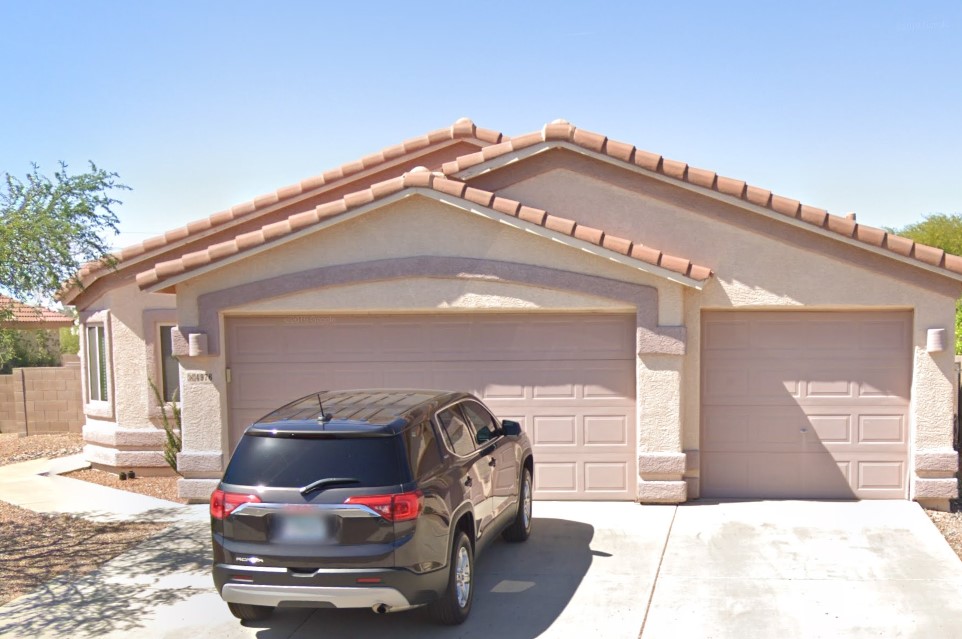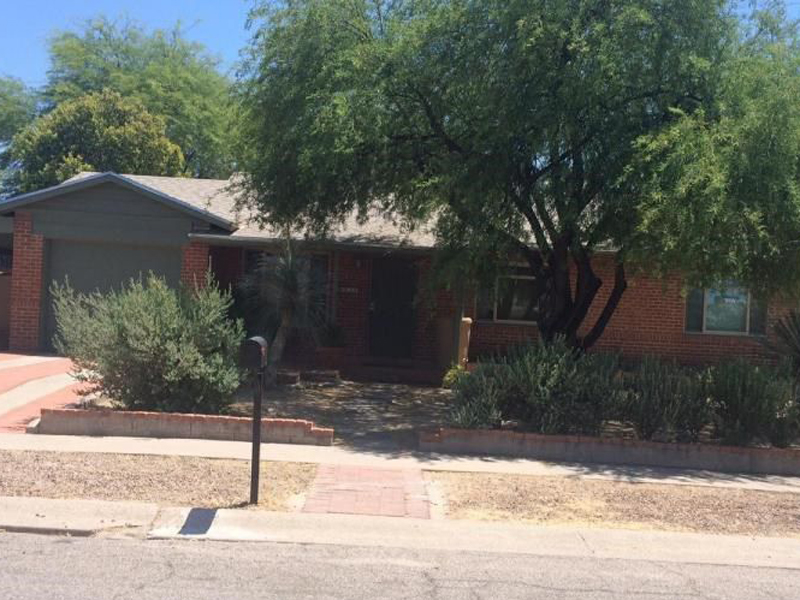Is Your Garage Door Stuck? Below's What to Do Initial
When your garage door will not open up, start with these vital safety and security checks before attempting any repairs. Initially, ensure no person is standing near the door which automobiles are clear of the opening. Seek apparent indicators of damages like damaged panels, bent tracks, or hanging cords. If you see a snapped spring or drastically harmed parts, quit quickly and call a professional—-- these repair services require specific tools and expertise to handle safely.

Examine These 6 Things Prior To Calling an Expert
Before presuming you require costly repair services, go through this fast diagnostic checklist that solves most garage door troubles:
-
Source of power: Confirm the opener is plugged in and the outlet is working
-
Remote batteries: Replace dead batteries in your push-button control
-
Hands-on lock: Check if someone mistakenly engaged the hand-operated lock
-
Obstructions: Search for particles obstructing the door's path or sensors
-
Emergency launch: Make certain the red emergency situation cord hasn't been drawn
-
Circuit breaker: Validate the garage circuit hasn't stumbled
These basic checks deal with about 70% of garage door issues without requiring specialist treatment.
10 Usual Reasons Your Garage Door Won't Open
Understanding why your garage door opener isn't working aids you pick the best service. Below are one of the most constant causes property owners encounter:
Dead remote batteries stand for the easiest fix—-- when batteries pass away, the remote can't send signals to the opener. Power failures or stumbled breakers cut power to the electric motor. Busted springs avoid the door from lifting correctly and need instant expert focus. Sensing unit misalignment reasons safety systems to obstruct door procedure. Track blockages quit rollers from relocating smoothly. Electric motor overload triggers automatic shutoffs when the opener identifies resistance. Limitation switch problems confuse the opener concerning door placement. Cord damage interrupts the training device. Weather-related issues affect door activity during extreme temperature levels. Element wear from age slowly decreases system performance.
Trouble # 1: Dead Remote Control Batteries
When your wall surface switch works but your remote doesn't, dead batteries are usually the offender. The majority of garage door remotes utilize either 3-volt lithium or 12-volt alkaline batteries. Remove the back cover of your remote and check the battery type. Replace with fresh batteries and test the remote. If it still doesn't function, you might need to reprogram it to your opener. Consult your opener's manual for details reprogramming guidelines, as the procedure varies by producer.
Issue # 2: Power Supply Issues
Garage door power troubles often originate from loose connections or tripped circuits. Examine that the opener is securely plugged into its electrical outlet—-- resonance can loosen links over time. Examine the electrical outlet with an additional device to confirm it's functioning. Examine your home's breaker box for stumbled circuits, especially if you've experienced storms or power variations. GFCI electrical outlets may have tripped and need resetting. If the opener has power however won't react, the problem most likely lies somewhere else in the system.
Issue # 3: Broken or Damaged Springs
Busted garage door springtimes are among one of the most hazardous components to deal with. If you listen to a loud bang from your garage or observe the door really feels exceptionally hefty when attempting to lift manually, a springtime has actually most likely snapped. Torsion springtimes run horizontally above the door, while expansion springtimes rest on either side. Never try springtime repair work yourself—-- these parts store remarkable tension that can create severe injury or death. Professional replacement commonly sets you back $150-$300 but guarantees your safety and security.
Problem # 4: Blocked Safety Sensing Units
Modern garage doors feature safety and security sensing units that prevent closure when items are discovered. These sensing units can quit the door from opening if they're unclean, misaligned, or blocked by debris. Tidy sensing unit lenses with a soft cloth and make certain absolutely nothing obstructs the invisible light beam between them. Inspect that sensing units are correctly aligned—-- most have indication lights that reveal link standing. Sensor issues often resolve with simple cleaning and modification.
Problem # 5: Track Obstructions or Damage
Garage door tracks guide rollers as the door goes up and down. Dust, debris, old oil, or small things can jam the system. Examine tracks aesthetically and eliminate any blockages with a brush or towel. Try to find dents, bends, or warping that could impede smooth procedure. Minor track changes are feasible for useful homeowners, but substantial damages needs professional repair work to prevent additional problems or safety risks.
Issue # 6: Garage Door Opener Motor Issues
When the garage door electric motor runs but the door doesn't relocate, numerous concerns could be responsible. The electric motor may be overwhelmed and shutting down as a precaution. Equipment wear, specifically in older devices, can prevent correct operation. Chain or belt drive troubles impact power transmission. If you hear uncommon grinding, clicking, or humming noises, quit using the opener immediately. Motor fixings usually set you back greater than substitute, particularly for devices over 10 years old.
Detailed Do It Yourself Troubleshooting Guide
Follow this organized strategy to garage door troubleshooting while focusing on safety and security throughout the procedure:
Step 1: Examine the wall surface button first. If it works but the remote does not, focus on remote issues. If neither works, inspect power supply.
Step 2: Check out the manual release cord. If it's been drawn, the opener is disengaged from the door. Press the cart back to reconnect.
Action 3: Manually check the door by disengaging the opener and attempting to raise the door by hand. It must move smoothly and remain in location when half-open.
Tip 4: Evaluate noticeable components for damage, paying special focus to springs, cords, and tracks.
Tip 5: Examine all safety and security features including sensors, restriction buttons, and auto-reverse functions.
Action 6: Examination various controls (remote, wall surface button, keypad) to isolate the problem source.
Constantly put on safety glasses and job handwear covers when carrying out evaluations, and never effort repair work on springtimes or high-tension components.
When to Call an Expert vs. DIY Solutions

Knowing when to call a garage door expert versus trying DIY repair services protects both your safety and your budget. Manage these issues on your own: dead remote batteries, power supply issues, small track cleaning, sensor cleaning and positioning, and fundamental lubrication.
Never ever try these repairs on your own: spring substitute or change, cable television repairs, major track adjustment, electric wiring issues, opener electric motor substitute, or any fixing entailing high-tension components. Specialist technicians have actually specialized devices, training, and insurance coverage to take care of harmful fixings securely.
Consider fixing prices versus replacement costs, particularly for doors over 15 years of ages. Modern garage doors offer far better safety features, energy efficiency, and integrity than older models.
Emergency Garage Door Solutions
When you're stuck to a garage door that won't open and need immediate access, adhere to these emergency treatments:
Manual Operation: Draw the red emergency situation launch cord to disengage the opener. This permits hands-on operation but requires proper technique to stay clear of injury. Raise the door gradually and uniformly, utilizing leg muscular tissues instead of your back. Most residential doors consider 100-150 extra pounds, making them manageable for the majority of adults.
Short-term Fixes: If the door opens up by hand however will not stay up, prop it open with sawhorses or clamps—-- never ever utilize your body or automobiles as assistances. For doors that will not close completely, ensure the opening is safeguarded if you should leave.
Emergency situation Service: Lots of garage door firms use 24/7 emergency service for situations including security concerns, trapped vehicles, or full system failings. While much more costly than routine solution phone calls, emergency situation fixings give immediate remedies when needed most.
Security Caution: What NOT to Do
Garage door safety and security needs recognizing unsafe repair services that need to never ever be attempted by home owners:
Never try to fix springtimes—-- they keep enough energy to trigger fatal injuries when they break or are poorly managed. Don't compel a stuck door—-- this can harm the opener, tracks, or door panels, producing much more pricey issues. Stay clear of bypassing security features—-- sensors and auto-reverse devices prevent significant injuries and residential or commercial property damages.
Don't disregard unusual noises—-- grinding, scratching, or banging audios indicate problems that worsen in time. Never ever make use of the door if cable televisions are torn or damaged—-- the door could fall suddenly. Do not try electrical repairs unless you're a qualified electrical contractor—-- garage door openers make use of both 120V home present and low-voltage control circuits.

Precautionary Maintenance to Prevent Future Problems
Routine garage door upkeep stops most usual issues and extends system life expectancy substantially:
Month-to-month Tasks: Aesthetic inspection of all parts, testing auto-reverse security features, examining and tightening up equipment, and cleaning tracks and sensing units.
Quarterly Tasks: Lubricating all relocating get rid of proper garage door lubricating substance, testing guidebook operation, and checking climate securing.
Yearly Jobs: Specialist evaluation and tune-up, spring modification if required, and opener upkeep including belt or chain modification.
Seasonal Jobs: Planning for weather condition extremes, examining insulation, and changing opener settings for temperature level modifications.
Regular maintenance expenses much less than emergency situation repairs and makes certain trustworthy operation year-round.
Garage Door Will Not Open FAQs
Why won't my garage door open with the remote yet deals with the wall surface switch?
This usually suggests dead remote batteries, signal disturbance, or the requirement to reprogram the remote. Inspect batteries initially, then consult your opener manual for reprogramming guidelines.
Can I manually open my garage door if the power is out?
Yes, pull the red emergency situation launch cord to disengage the opener, then raise the door manually. Be planned for the door's complete weight and lift with appropriate method to stay clear of injury.
Just how do I know if my garage door spring is broken?
Signs consist of a loud bang from the garage, the door sensation extremely hefty when raising manually, visible spaces in the springtime coils, or the door just opening a couple of inches prior to quiting.
Is it safe to utilize my garage door if it will not open up completely?
No, partial operation suggests mechanical problems that might get worse suddenly. Stop making use of the door and have it inspected by an expert to stop more damage or injury.
What should I do if my garage door opens however won't shut?
Examine safety and security sensing units for blockages or misalignment, take a look at the tracks for particles, and examine the auto-reverse function. If these do not address the trouble, seek advice from a specialist.
Just how much does it set you back to repair a garage door that won't open up?
Costs differ extensively depending on the issue: battery replacement ($5-$10), expert medical diagnosis ($50-$100), spring substitute ($150-$300), or opener substitute ($200-$500).
Can weather impact my garage door's capacity to open up?
Yes, extreme cold can enlarge lubricants and impact steel components, while heat can create growth concerns. A lot of issues resolve as temperatures stabilize, however persistent issues might need professional attention.
Why does my garage door open a few inches after that quit?
This generally shows broken springtimes, limitation switch issues, or track blockages. The opener's safety functions stop procedure when resistance is discovered, stopping damage to the motor or door.
Get Professional Assist for Facility Concerns
When DIY repairing does not fix your garage door troubles, expert service technicians offer the competence and tools required for risk-free, lasting repair work. Certified experts identify issues accurately, use manufacturer-approved parts, and give warranties on their job.
Expert solutions consist of: detailed system examinations, spring and cable replacement, opener fixing and substitute, track positioning and replacement, electric troubleshooting, and emergency solution telephone calls.
What to anticipate: ahead of time rates, licensed and insured technicians, same-day solution for numerous repair work, and follow-up upkeep recommendations.
Many garage door companies use free quotes for major repairs and can offer instant services for immediate troubles influencing home safety and security or vehicle accessibility.
Getting Your Garage Door Working Again
A garage door that won't open doesn't need to ruin your day or damage your spending plan. Start with basic troubleshooting actions like checking power, replacing batteries, and analyzing for noticeable blockages. Several troubles have quick DIY solutions that restore normal operation within mins.
Nevertheless, recognize when expert aid is necessary—-- particularly for spring-related concerns, electrical issues, or facility mechanical failures. Trying unsafe repairs on your own takes the chance of how to tell if your garage door spring is failing major injury and usually creates more pricey troubles.
Regular upkeep avoids most garage door problems and makes sure reliable operation for many years ahead. When troubles do take place, address them promptly to avoid even more expensive repairs and keep your home's safety and security and benefit. Whether you need a straightforward battery replacement or full system overhaul, options exist to obtain your garage door working efficiently once more.